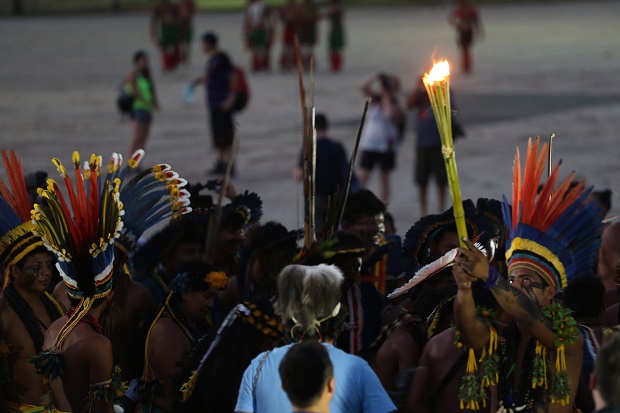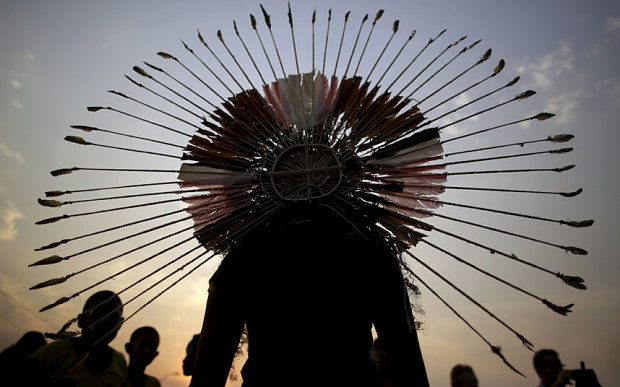Participants arrive for first ‘indigenous Olympics’ from dozens of Brazilian ethnicities as well as from such far-flung nations as Ethiopia and New Zealand
PALMAS, BRAZIL — World’s first “indigenous Olympics” kicked off Thursday at a remote city in northern Brazil with a boisterous cultural mash-up as Maori warriors, gong-bearing Filipinos and feather-crowned Brazilian tribespeople joined a traditional fire-lighting ceremony.
Indigenous peoples from countries including Ethiopia, Mongolia and Brazil sang and danced at the ceremony, dressed in traditional outfits.
The event in the northern Brazilian city of Palmas officially gets under way on Friday and will end on 31 October.
Brazilian President Dilma Rousseff is expected to attend a lavish opening ceremony in the games’ host city, Palmas, a remote outpost in the sunbaked heart of Brazil.

Some 2,000 athletes from many indigenous ethnic groups and 30 countries are taking part in the first World Indigenous Games.
Among the sports included in the games are archery, spear tossing, canoeing and a race through the forest.
Peoples from across the Americas, as well as Australia, Russia, the Philippines, Ethiopia and New Zealand are participating in world’s first Indigenous Olympics. While 24 different indigenous groups are taking part from Brazil alone.
The demonstrators’ grievances ranged from a proposed constitutional amendment that would give Congress the right to demarcate indigenous lands to a rash of suicides among indigenous people in Brazil’s Mato Grosso do Sul state, where land conflicts between tribes and ranchers rage.
Estimated to have numbered from between 3 million to 5 million in pre-colonial times, Brazil’s indigenous people now make up just 0.5 per cent of the country’s 200 million-strong population.





